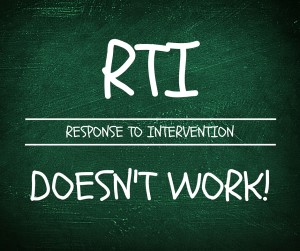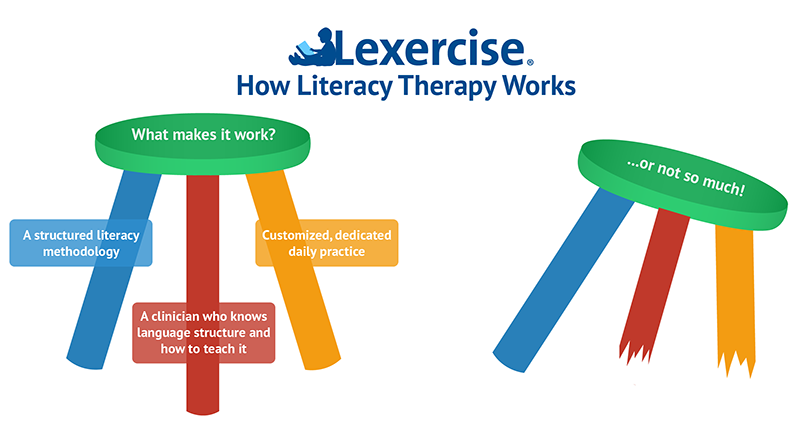Government Says R-t-I Doesn’t Work
Written by Sandie Barrie Blackley, Speech-Language Pathologist
Published on November 24, 2015
 A government-funded research study released this month shows that public schools providing “intense reading intervention services” in a Response-to-Intervention (R-t-I) model often fail to improve student reading skills. In fact, this research suggests that, for some groups of students, the school intervention actually had a negative impact on broad reading skills. The researchers concluded that the interventions the schools are using might not be appropriate for some students. (Balu, R., et al., 2015)
A government-funded research study released this month shows that public schools providing “intense reading intervention services” in a Response-to-Intervention (R-t-I) model often fail to improve student reading skills. In fact, this research suggests that, for some groups of students, the school intervention actually had a negative impact on broad reading skills. The researchers concluded that the interventions the schools are using might not be appropriate for some students. (Balu, R., et al., 2015)
The data from the Institute of Education Sciences and the Institute for Educational Statistics have long called in the question the effectiveness of public school R-t-I services for struggling readers, so this is really nothing new.
Lexercise uses an analogy for how this kind of failure might occur. The 3-legged stool illustrates that intervention must have three strong components all working together or intervention is likely to be ineffective (and stool falls over).
- BLUE LEG
- What was the intervention method? The government-funded research provides no clear description of the intervention curricula. It says it was “small group instruction”, but that’s a feature of the setting in which intervention occurs and not an intervention methodology.
- RED LEG
- Were the educators experts in language structure? There is no description of the competency of those who provided the intervention.
- ORANGE LEG
- Was there customized, daily practice for each student? We are not talking about seat-time here but how many response challenges each student got per day and his or her response to this practice. There is no description of that.
Balu, Rekha, Pei Zhu, Fred Doolittle, Ellen Schiller, Joseph Jenkins, and Russell Gersten (2015). Evaluation of Response to Intervention Practices for Elementary School Reading (NCEE 2016-4000). Washington, DC: National Center for Education Evaluation and Regional Assistance, Institute of Education Sciences, U.S. Department of Education.
Improve Your Child’s Reading
Learn more about Lexercise today.
Schedule a FREE
15-minute consultation



